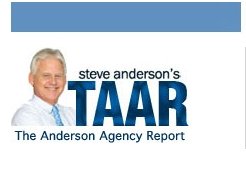A few months ago, Steve Anderson and nine other insurance industry consultants came together to pen an open letter to independent insurance and benefits agencies. Within the letter, these industry insiders discussed “an industry in crisis”, due to struggles with growth, regulatory uncertainty, and ineffective carrier policies. We had the chance to sit down with Steve to discuss this letter. We also got some great advice on how agents can adapt to the changing road ahead.
Insurance-Forums.net (IFN): In your letter, you discuss ways that agents can overcome industry vulnerabilities. If they take action, what will this positive change look like five or ten years from now?
Steve: Part of the message that we’re trying to send is that most people are not buying anything the way they have in the past. In terms of technology, there are two types of consumers – connected ones, and unconnected ones. Consumption in general is shifting toward becoming more and more connected. As a result, people expect a different type of experience when they’re purchasing services or products – this includes everything from homes to automobiles to health insurance to business insurance. Many people are starting to research online and doing much more of the consumer interaction through online services, forums, and new technology. That’s a trend that i see that i don’t think is going away.
Our experience is that many insurance agents are doing business the way they always have. This tech-enabled business trend will only accelerate, and because of that, agents need to be thinking differently about how they interact, how they build relationships, and what a customer relationship looks like. From my perspective, I think technology plays a large role in what it means to actually connect with people today, versus how it was used five years ago. Something as simple as the iphone has completely changed how people interact with information. If agents of all types don’t begin adapting to mobile, to websites, and to having the ability to do payments and transactions and policy changes from the internet, I think that consumers will go and find other providers that will.
IFN: Do you see the insurance industry as being one of those that is slow to adapt to technology?
Steve: I tell people i have job security because the insurance industry is five years behind a lot of other industries. Our industry is not known for rapid innovation, and I believe it’s becoming a real problem. Half of the agents who wrote the letter with me specialize in health, and others specialize in P&C. Yet, all of us see this need for innovation in thinking, as well as in tools. It’s not solely about technology.
One of the things I say all the time is that technology is an enabler, but technology only supports your business strategy. Coming up with a strategy that’s effective is equally important. We need to study how consumers are changing and how their expectations of what good service looks like is also changing.
So in terms of strategy, how do we build relationships with people who only want to go online? The reality is, the online relationship can still be as strong as a face-to-face relationship. It’s just a different media and medium that people are using. How do we collaborate and communicate with them? I just wrote an article on LinkedIn about my customer service experience with a contractor who was remodeling my kitchen. If a contractor can effectively innovate his customer service strategies, we better start thinking about doing it too.
IFN: You write The Anderson Agency Report – a monthly report on technology in insurance. What value can agents gain from it?
Steve: Each day, I read about and examine a lot of new technology that comes out. The Anderson Agency Report is my primary way of delivering product reviews and things that you as an agency or agent should be thinking about. For example, I’m working on an article right now looking at different customer portals. I look at the technology tools available and the internal business processing tools that help agents develop their services. This monthly report benefits an agency because I can serve as an information curator. I read a lot, and then filter what I think agents need to hear about and know about.
Earlier this year, I wrote that 50% of insurance agency personnel will be retired in ten years. Also, the average age of insurance clients is somewhat older. In terms of strategy, how will I replace these clients? How will we as agents replace the knowledge and experience of these established agents who will retire? What does outsourcing look like? How will I attract younger people into the industry? College students don’t typically think, “Wow, I want to go into insurance!” But it’s a great industry and there is huge opportunity for young people. So these are all questions and strategy problems that I write about and discuss.
IFN: On that note, what advice do you have for new people who are entering the insurance industry, given the unique conditions of the field right now?
Steve: I think my advice for someone looking for a position within the industry is to look for agencies and or companies that are more forward-thinking. Try and discern the organizations that will give you, as someone out of college, more flexibility to experiment and try things. Also, be willing to be somewhat patient. We are an industry that doesn’t change rapidly. There are some reasons for that. There’s a lot that a 20-year old and a 30-year old can bring to the field in terms of passion, excitement, and an understanding of how their peers think about service and interaction. But – one of the frustrating parts of the field is that a lot of organizations don’t want to change. So, look for the organizations that are willing to change and support growth and innovation.
We came away from this interview feeling positive about the future for brokers and agents, despite the current difficulties they face. With change comes opportunity, and through technology and adaptation, the insurance industry has the potential to improve. For more, check out the open letter – it’s an inspiring call to action!













